11 Myths and Truths about Insomnia - TV Induce Sleepiness
A minor problem may be aggravated by false myths about insomnia and its remedies.
Rest disorders can have over 80 possible causes. Medical statistics show that 30% -50% of the earth's population suffer from insomnia, and 10% of chronic insomnia.
Although many people have difficulty falling asleep or maintaining the status evening sleep until dawn, little resort to a specialist for appropriate treatment. Good information on treating insomnia is the first step towards solving this problem widespread.
1. Insomnia means that a person can not sleep
When a health problem is not understood correctly solving it remains far from being realized. Many people believe that insomnia refers to the inability to fall asleep tonight, but in reality, this diagnosis includes the people who fall asleep easily but wake up repeatedly throughout the night, even when they receive optimal conditions for rest (quiet, dark, etc.).
2. Alcohol helps to treat insomnia
Immediately after it consumed alcohol induces sleepiness accentuated, so it is erroneously associated with a cure for insomnia. Experts say that contradict this myth and drinks based on alcohol facilitates falling asleep, but disrupt sleep throughout the night.
Alcoholic substances induce a state of agitation that cause repeated awakenings every 1-2 hours and dehydrates the body, leading to the need to urinate frequently and drink water to compensate for lost fluids.
3. Insomnia is a psychic problem
While it is true that a number of causes of sleep disorders can be psychological (stress, anxiety, depression etc.), insomnia can be caused by other factors such as improper resting conditions (room stuffy, noise or thermal discomfort), certain diseases that can cause insomnia, side effects of some medications, chronic pain, sleep apnea, digestive disorders, restless leg syndrome or urinary tract infections.
4. TV helps to induce sleepiness
Many people think that sleep easier leaving the TV on before bed, but this effect is usually quite the contrary. Light and noise emitted by a TV or computer stimulates the nervous system and reduce the level of melatonin in the brain, the hormone responsible for sleep. If you can not sleep quietly, use a soothing and relaxing music in the background.
5. Sleep loss can be recovered
Another myth which many people give it credence is that some sleepless hours at a time can be retrieved later by extending opening hours rest. Experts say that this phenomenon compensation is not possible, at least not entirely.
When insufficient sleep three days a week and try to recover sleep on weekends, do nothing to disrupt the biological clock and will predispose to risk of falling asleep more difficult on these nights. The only way you can get rid of fatigue accumulated at a time is to return as soon compliance program healthy recreation, less than 8 hours a night, between 22 pm - 07 am.
6. A nap a day help treat insomnia
Not all people react the same way when they rest during the day. A nap of 10-20 minutes can be refreshing, but when it exceeds this range, certainly affects the ability to fall asleep at a reasonable hour tonight.
In people suffering from insomnia, daytime sleep may be even more harmful, emphasizing the unpleasant symptoms of sleep disorder.
7. People can learn to need less sleep
A dangerous myth, categorically denied medical experts. Everyone is born with a must own the rest, although most people need 7-8 nocturnal sleep to function normally during the day.
While it is possible for someone to wield a low number of hours of rest, train the body will not be able to need only 2 or 3 hours of sleep without side effects. Sleep deprivation affects memory, attention, ability to work, the immune system and reflexes.
8. Lifting the bed helps fight insomnia
This myth is validated by specialists, who say they can help a person who fails to sleep, to get up and perform a relaxing activity. In this way, we can prevent the bed unconscious association with alertness and restlessness.
9. Sleep problems transient in nature
Until we know the exact cause of insomnia that affects the quality of life (stress, some medications, hearty dinners etc.), you can not expect sleep disorders will pass by themselves. If you can not fall asleep in the evening or to enjoy an uninterrupted sleep until morning and wake up to a pronounced state of fatigue, it is necessary to talk with your doctor about possible treatment.
10. A sleepless night followed by one with deep sleep
The apparent logic of this myth is contradicted by specialists. A sleepless night is not always succeeded by one of deep sleep, on the contrary. Agitation-induced exhaustion and worry that you will not be able to sleep again will definitely affect the ability recreation.
11. Sleeping pills are the only treatment for insomnia
There are many people affected by insomnia who refuse to seek treatment for fear of side effects of sleeping pills. In reality, therapeutic alternatives for this problem are numerous, from cognitive behavioral therapy, to relaxation techniques such as meditation. Talk with your doctor about alternative treatments suitable for you if you have difficulty resting.
References:
- http://www.webmd.com/sleep-disorders/guide/insomnia-symptoms-and-causes#1
- http://www.medicalnewstoday.com/articles/9155.php

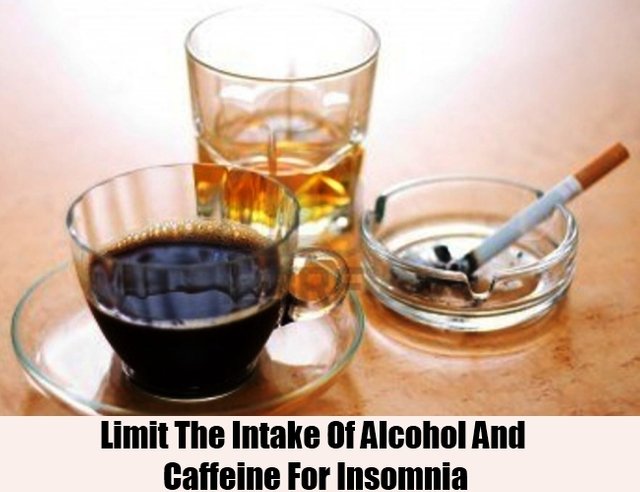
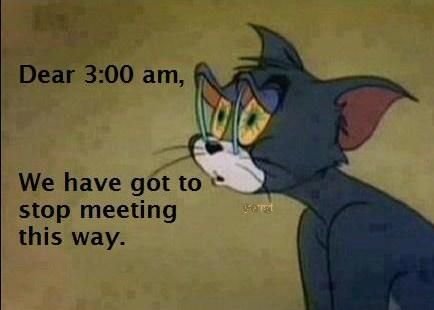
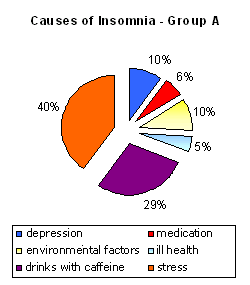
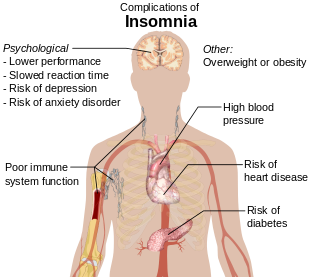
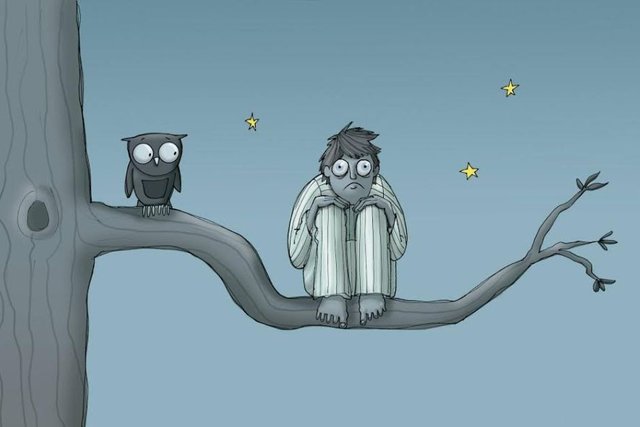
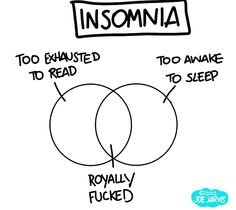
Some doctors told me anybody suffering insomnia is in reality suffering a depression and brain has troubles to slow down or sleep
Recently, researchers have begun to think about insomnia as a problem of your brain being unable to stop being awake (your brain has a sleep cycle and a wake cycle—when one is turned on the other is turned off—insomnia can be a problem with either part of this cycle)
Other doctors believe there is a connection between Alzeihmer and watching TV screen or Pc screens for a long period time along many years. I mean if you stay more than 5 hours per day watching TV, they think there is an increase in risk to suffer Alzeihmer once you become old.